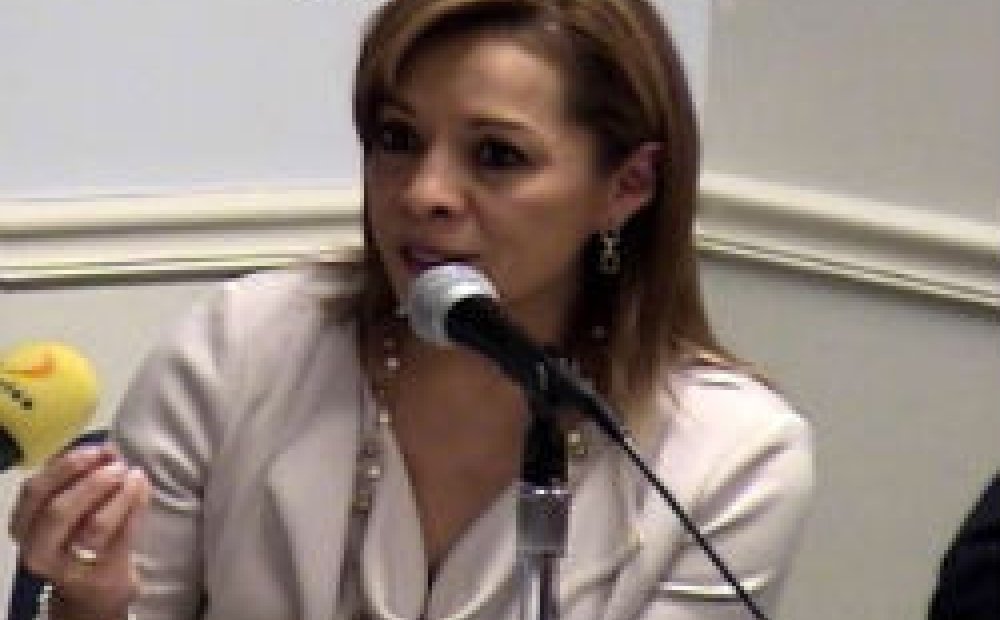Dialogues with Mexico / Diálogos con México, featuring Josefina Vázquez Mota

The Woodrow Wilson Center’s Mexico Institute and the Inter-American Dialogue were pleased to host the latest in the series of Dialogues with Mexico: A Conversation with Josefina Vázquez Mota, Mexican congresswoman and prominent member of Mexico's ruling PAN party.
In a public forum held at the Inter-American Dialogue on October 21st, Vázquez presented her agenda in four priority areas: 1) democracy and federalism, 2) the economy, 3) education reform, and 4) justice and security. She highlighted the importance of improving relations not only with the United States, but also Asia and the rest of Latin America. Despite Mexico’s difficult circumstances, she argued, there is still a window of opportunity to make Mexico a more prosperous country.
Vázquez noted that there is a sudden nostalgia for an authoritarian state, referring to the 70 years the PRI was in power. However, she pointed out that “people should note that there is a big difference between a strong state and an authoritarian one. A strong state is also a state where competition is allowed, locks are removed, and exceptions do not exist.”
Despite the recent financial and economic crises worldwide, Mexico has been able to maintain economic stability, but at the expense of economic growth. Strengthening Mexico’s economy will entail labor, energy, and agricultural reforms, Vázquez noted. “Mexicans work a lot but produce little. Clearly, productivity in the country is weak.”
Investment in education will be key to increasing productivity. Quality, coverage, and retention will be her education priorities. Vázquez stated she would deal directly with teachers instead of negotiating with the head of the traditionally powerful teachers’ union to achieve the education reform needed.
She left Mexico’s most pressing challenge, insecurity, for last. With more than 50,000 deaths linked directly to the war on drugs and crime initiated by Felipe Calderón in 2006, security and justice are foremost on the minds of Mexican citizens. Vázquez commented on the unique situation unfolding in Mexico contending, “There is organized crime in every country. The difference in Mexico is that we don’t draw a line. We cannot continue to allow people involved in the drug trade to open businesses and obtain amnesty and immunity.” Once citizens have regained trust in police forces, she intends to remove military troops from domestic law enforcement.
With the primaries fast approaching, Vázquez hopes to tap into Mexicans’ desire to break with the country’s political past and lead Mexico into a new age of security and prosperity. When asked why she decided to run for the presidency, she responded, “People are tired of politicians and political parties. This election they will vote for the candidate and not the party […] I think Mexico is ready for a female president and for someone who is willing to change the art of war into the art of peace.”
The webcast for the discussion can be viewed at the Inter-American Dialogue's event page.
Hosted By

Mexico Institute
The Mexico Institute seeks to improve understanding, communication, and cooperation between Mexico and the United States by promoting original research, encouraging public discussion, and proposing policy options for enhancing the bilateral relationship. A binational Advisory Board, chaired by Luis Téllez and Earl Anthony Wayne, oversees the work of the Mexico Institute. Read more
